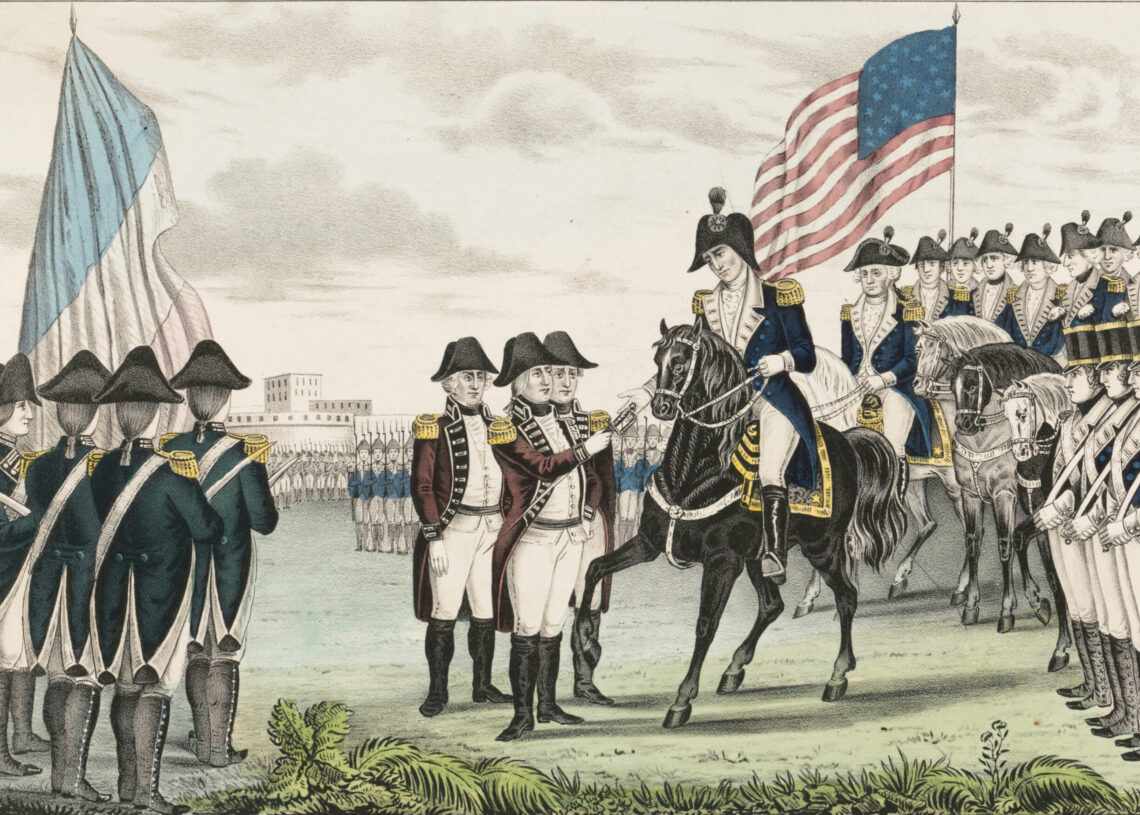History’s gears are lubricated by gore. Witness America’s Revolutionary War, whose continuing reverberations have done more to improve the course of human events than any other event in history.
The war was fueled by crystalline ideas couched in elegant prose authored by members of the Colonial upper crust. But from 1777 on, most bleeding was done by “the poorest of the poor — jobless laborers and landless tenants, second and third sons without hope of an inheritance, debtors and British deserters, indentured servants and apprentices, felons hoping to win pardons.”
History’s gears are lubricated by gore. Witness America’s Revolutionary War, whose continuing reverberations have done more to improve the course of human events than any other event in history.
The war was fueled by crystalline ideas couched in elegant prose authored by members of the Colonial upper crust. But from 1777 on, most bleeding was done by “the poorest of the poor — jobless laborers and landless tenants, second and third sons without hope of an inheritance, debtors and British deserters, indentured servants and apprentices, felons hoping to win pardons.”
So says a new telling of America’s origin story, which is a tapestry of suffering, viciousness, selflessness and nobility. Beginning Sunday, in six two-hour episodes on PBS, “The American Revolution” will immerse viewers in an often bewildering, sometimes dismaying, but ultimately exhilarating documentary by Ken Burns, Sarah Botstein and David Schmidt.
It is a tutorial that teaches an appreciation of contingency: Things could have turned out very differently than they did. And of pre-modernity: George Washington’s army was threatened by Britain’s, but more so by smallpox, which killed 100,000 Americans, soldiers and others, during the seven war years.
The war was, from Lexington Green to Yorktown, always a civil war (Washington: “A Brother’s Sword has been sheathed in a Brother’s breast”), with approximately one-third of the population Loyalists (about 50,000 fought for the king), one-third Patriots, one-third just wanting the war to go elsewhere. Benjamin Franklin’s son was a Loyalist. In some battles, almost everyone on the battlefield was an American.
The colonies’ 24 weekly newspapers agitated America’s unusually literate population, as did Thomas Paine’s “Common Sense.” Washington, called to the colors after 16 years away from military matters, traveled with books on logistics, fortifications and artillery.
The Patriots dragged 64 tons of artillery 300 miles from Fort Ticonderoga across the Berkshire mountains to Boston, the documentary reports. Fighting against an empire, the motivated Patriots had an empire in their heads — the Ohio Valley and beyond. The Continental Congress called it the Continental Army for a reason.
This is why the most tragic people swept into the tornado of war were the 150,000 Native Americans. They were certain to lose everything — including their land — no matter which side won the war. Their westward trek of tears began before the war ended. Pressured by Congress, in May 1779 Washington ordered “the total destruction and devastation of [Native American] settlements.… It will be essential to ruin their crops now in the ground and prevent their planting more.”
Five thousand Black men and many Native Americans served in Continental Army units more integrated than U.S. forces would be until the late 1940s.
Among the war’s troubling paradoxes is this:
The final fight for America’s freedom to secede from the British Empire was won in roughly 100 battles in South Carolina that produced almost one-fifth of all the war’s battle deaths. That state’s victorious militias had been created before the war as precautions against slave rebellions. And eight decades later, South Carolina was back in the secession business.
The fate of a continent was determined by mostly brief and small battles. The largest was the last, Yorktown, with nearly 20,000 American and French troops and 9,000 British engaged. Americans killed: 389. At Lexington: eight. Bunker Hill: 115. At Monmouth, the last major battle in the North: 362. (On the first day of the Battle of the Somme, July 1, 1916, almost 20,000 British soldiers were killed.)
In the 20th century, the fates of other continents were shaped by the material and moral resources our Revolution unleashed. A European general aiding the Patriots discovered the secret of America’s success, its inveterate individualism. To a European friend he wrote: “You say to your soldier, ‘Do this,’ and he does it; but [here] I am obliged to say, ‘This is the reason why you ought to do that,’ and then he does it.”
And always, more gore. In the middle of an operation to amputate (without anesthesia) a soldier’s leg, a cannonball removed the other.
In his preface to the film’s companion book, Burns says Americans today are detached from the war’s “sometimes difficult truths.” There is, however, “comfort in complication,” when “the distractions” of myths and nostalgia are replaced not by “unforgiving revisionism” but by unblinking comprehension of the always winding, often violent, course of human events.
Consider this documentary the unofficial beginning of our 250th birthday party. Given today’s pandemic of crankiness, the party might trundle downhill from here. But for six nights, the view from the hilltop is riveting.
The post No historical event benefited the world more than the Revolutionary War
appeared first on Washington Post.




